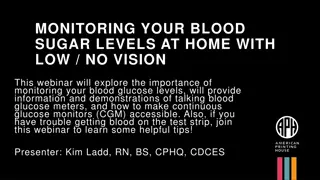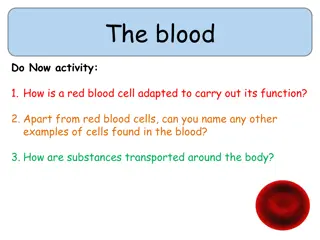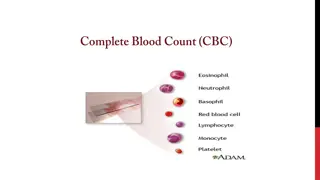
Blood Phosphorus: Functions, Levels, and Effects
Phosphorus is a vital mineral with various functions in the body, including energy production, muscle and nerve function, and bone growth. This article explores the regulation of blood phosphate levels, symptoms of low levels, and causes of hypo- and hyperphosphatemia. Discover phosphorus-rich foods, how the body maintains phosphate balance, and the risks associated with high phosphorus levels, such as organ damage due to calcification. Reference levels and differences in phosphate levels between children and adults are also discussed.
Download Presentation

Please find below an Image/Link to download the presentation.
The content on the website is provided AS IS for your information and personal use only. It may not be sold, licensed, or shared on other websites without obtaining consent from the author. If you encounter any issues during the download, it is possible that the publisher has removed the file from their server.
You are allowed to download the files provided on this website for personal or commercial use, subject to the condition that they are used lawfully. All files are the property of their respective owners.
The content on the website is provided AS IS for your information and personal use only. It may not be sold, licensed, or shared on other websites without obtaining consent from the author.
E N D
Presentation Transcript
Blood Phosphorus Presented By Assist.Lecturer Aseel Ghassan Daoud M.Sc. In pharmacy/ Clinical laboratory sciences
What is phosphorus? It is a mineral that combines with other substances to form organic and compounds. What are functions of phosphates? Energy production Muscle and nerve function Bone growth Buffer that maintains acid-base balance inorganic phosphate
How can the body regulate blood phosphate level ? How much it absorbs from the intestines How much it excretes via kidneys It is also affected by parathyroid hormone (PTH), calcium and vitamin D.
Causes of hypophosphatemia: Hypercalcaemia and high level of PTH Overuse of diuretics Malnutrition Diabetic ketoacidosis Hypothyroidism Hypokalemia Rickets due to vit. D deficiency Sever burns Alcoholism Chronic antacid use
Causes of hyperphosphatemia: Kidney failure Hypoparathyroidism Hypocalcaemia Diabetic ketoacidosis (first seen) Phosphate supplementation
High phosphorus level can lead to organ damage, why? due to calcification, deposits of calcium phosphate in tissues.
Reference level: 12-60 years : 2.7-4.5 mg/dl Why are phosphate levels in children higher than in adults?






















